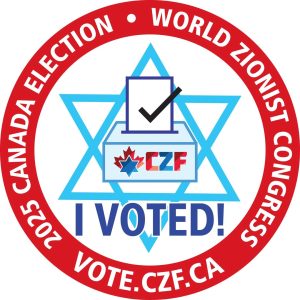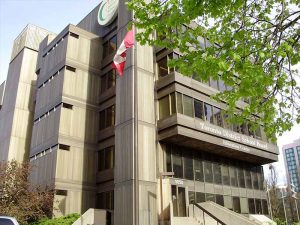 TORONTO — Aryeh Green offered a bit of novel advice for observers of the Middle East whose blood may boil when they read reports by western journalists who toe the Palestinian line. Don’t get angry with them, he suggested, make friends with them.
TORONTO — Aryeh Green offered a bit of novel advice for observers of the Middle East whose blood may boil when they read reports by western journalists who toe the Palestinian line. Don’t get angry with them, he suggested, make friends with them.
Aryeh Green
A variation on the old theme of catching more flies with honey than with vinegar, Green said he has put that approach to work in Israel, where he attempts to cultivate relationships with foreign correspondents and influence their coverage in a way that brings into play the Israeli position on contentious issues.
Green is director of MediaCentral, an offshoot of HonestReporting, which describes itself as a Jerusalem-based media-liaison organization that provides support services for journalists based in or visiting Israel and the Palestinian territories.
Palestinians have been “shmoozing” reporters for years, with some success, Green told an audience at a downtown law offices of Cassels Brock & Blackwell recently. Green and John Thompson, director of the Mackenzie Institute, were guests of the Speakers Action Group and the Canadian Jewish Civil Rights Association. They spoke on “Israel in the News… a War of Ideas.”
MediaCentral helps journalists with information, access to relevant new sources and with materials. Doing so is something of an antidote to the pro-Palestinian line many reporters bring with them to Israel, Green said.
By providing professional services to journalists, MediaCentral can help ensure the reports are more balanced.
“I believe accuracy is Israel’s best ally,”Green said. “More than that, journalists see themselves as professionals. The majority of the journalists working and reporting in Israel are professionals and doing the best job they can to report from the field. Our goal is to help them achieve their goals.”
Still, he conceded, many foreign correspondents in Israel tilt to the Palestinian side and have adopted their perspective. “They are a product of their generation and intellectual milieu that accepts the Palestinian view and that informs their view of the Middle East,” he said.
Green, a onetime adviser to former Knesset member and deputy prime minister Natan Sharansky, said the pro-Palestinian perspective can be found in many examples: the description of Israel’s security barrier – which is mostly fence – as an “apartheid wall”; or in the labelling of Israeli political leaders such as Benjamin Netanyahu as “hawkish,” while Arab leaders like Hosni Mubarak, Mahmoud Abbas and the Saudi leadership are termed “moderates.”
Hamas rocket attacks are minimized, with a reporter stating “only 23 Israelis” were killed by them. “Palestinian acts of violence are minimized, while the world media condemns Israel for defensive operations. We should be very concerned by that,” he said.
Thompson said the western world is entering a phase of “fourth-generation warfare,” which has eclipsed first-generation combat [over territory], second-generation conflict [wars of attrition like World War I] and third-generation war of manoeuvre and psychology [World War II].
“The real objective of fourth-generation warfare is international sympathy,” he told The CJN. “Hezbollah in 2006 played for that very successfully, and Israel did not even know that the game had changed.”
The most successful practitioners of fourth-generation warfare were the Vietnamese, who lost every battle to U.S. forces but who convinced the American public the war was unwinnable. That led to the withdrawal of U.S. forces, Thompson said.
In Gaza, the media reported on frightened-looking children, “but the people behind them were fine.”
Thompson said western countries face an external threat by jihadists and an internal threat from leftists who, like those who saw nothing wrong with Stalin or Hitler, support external enemies.
“As a Scot, Irish Catholic, the defence of my heritage, traditions and culture begins by defending the Jews,” he said.






